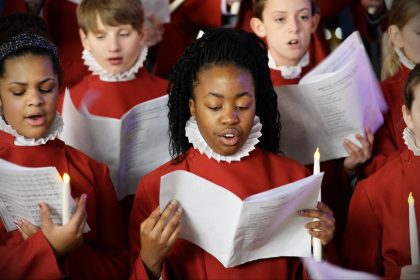While Christmas trees have long been a festive centerpiece, there are compelling reasons why some people choose to skip this tradition. Understanding these factors can help you make an informed decision about your holiday decorating choices. The pressure to maintain traditional decorations often overshadows the practical and personal benefits of exploring alternative celebrations.
1. Hidden health concerns
Many people don’t realize that Christmas trees can harbor mold spores and trigger allergic reactions. Live trees often bring in pollen, dust, and various outdoor allergens, while artificial trees collect dust throughout the year in storage. For those with respiratory sensitivities or allergies, these issues can turn holiday joy into weeks of discomfort.
Dr. Sarah Chen, an allergist, explains: “Christmas trees can cause what we call ‘Christmas tree syndrome,’ where people experience increased allergy symptoms during the holiday season. Both real and artificial trees can contribute to indoor air quality issues.”
The health implications extend beyond allergies. Some people report headaches, fatigue, and skin irritations from exposure to tree sap or artificial materials. These symptoms often go unrecognized as tree-related, leading to unnecessary discomfort throughout the season.
2. The environmental impact
Despite their festive appeal, both real and artificial trees pose environmental challenges. Live trees, while renewable, often involve pesticides during farming and create disposal issues after the holidays. Artificial trees, typically made from non-biodegradable materials, eventually end up in landfills where they can take centuries to decompose.
Environmental scientist Dr. Michael Roberts notes: “The carbon footprint of Christmas trees includes not just their disposal, but also transportation, water usage in tree farms, and the chemical treatments used to preserve them. Artificial trees, while reusable, contain non-biodegradable plastics and often travel thousands of miles from manufacturing plants.”
The environmental cost increases when considering the packaging materials, transportation emissions, and energy used in commercial tree farming. Even sustainable tree farms require significant resources for maintenance and distribution.
3. Safety hazards for pets and children
Christmas trees present multiple safety concerns for households with pets or young children. Curious cats may climb trees, causing them to topple, while dogs might be tempted to drink tree water, which can contain harmful chemicals. Sharp ornaments, electrical cords, and small decorations pose choking hazards for both children and pets.
Veterinarian Dr. Emily Parker shares: “Every holiday season, we see an increase in emergency visits due to tree-related incidents. From ingested needles to toxic water preservatives, the risks to pets are significant and often overlooked.”
Child safety expert James Wilson adds: “Trees create an attractive nuisance for toddlers and young children. The combination of bright ornaments, accessible water, and potential instability makes them a significant safety concern in homes with young children.”
4. Financial and time investment
The full cost of a Christmas tree extends beyond its initial purchase. Consider the additional expenses of ornaments, lights, tree preservatives, and specialized cleaning supplies. Moreover, the time spent setting up, maintaining, and eventually disposing of the tree can be significant during an already busy season.
Financial analyst Maria Garcia provides perspective: “When calculating the true cost of a Christmas tree, consider the hidden expenses: storage solutions, replacement decorations, cleaning supplies, and potential property damage from water or fallen trees. For artificial trees, factor in storage costs and the need for replacement every few years due to wear.”
Psychological benefits of breaking tradition
Psychologist Dr. Rachel Thompson explains that breaking from tradition can actually enhance holiday enjoyment: “Moving away from expected traditions allows families to create more meaningful, personalized celebrations. This shift often reduces holiday stress and opens opportunities for new, more fulfilling customs.”
Money-saving alternatives
The funds typically spent on trees and decorations can be redirected toward memorable experiences or charitable giving. Many families report greater satisfaction when investing in holiday activities rather than decorations.
Cultural perspectives on tree-free celebrations
Many cultures celebrate winter holidays without trees, demonstrating that meaningful celebrations don’t require this specific tradition. From light festivals to community gatherings, various cultures offer inspiring alternatives for holiday decoration and celebration.
Impact on holiday entertaining
Without a tree dominating the living space, hosts often find more flexibility in arranging their homes for holiday gatherings. This can lead to more comfortable, spacious environments for celebrating with family and friends.
Creating new traditions
Families who skip the tree often develop unique and meaningful alternatives. Some focus on outdoor decorations, while others create seasonal displays that can remain appropriate throughout the winter months. These alternatives often become cherished new traditions that better reflect the family’s values and lifestyle.
The bottom line is that skipping the Christmas tree doesn’t mean sacrificing holiday joy. Whether motivated by health concerns, environmental consciousness, safety considerations, or practical constraints, your holiday celebration can be just as festive and meaningful without this traditional centerpiece. By understanding and embracing your reasons for this choice, you can create new traditions that resonate more deeply with your values and circumstances while avoiding the various drawbacks of traditional tree displays.
Consider your personal circumstances and what matters most to your family when making this decision. The best holiday traditions are those that bring joy and comfort while aligning with your values, lifestyle needs, and practical considerations.
















